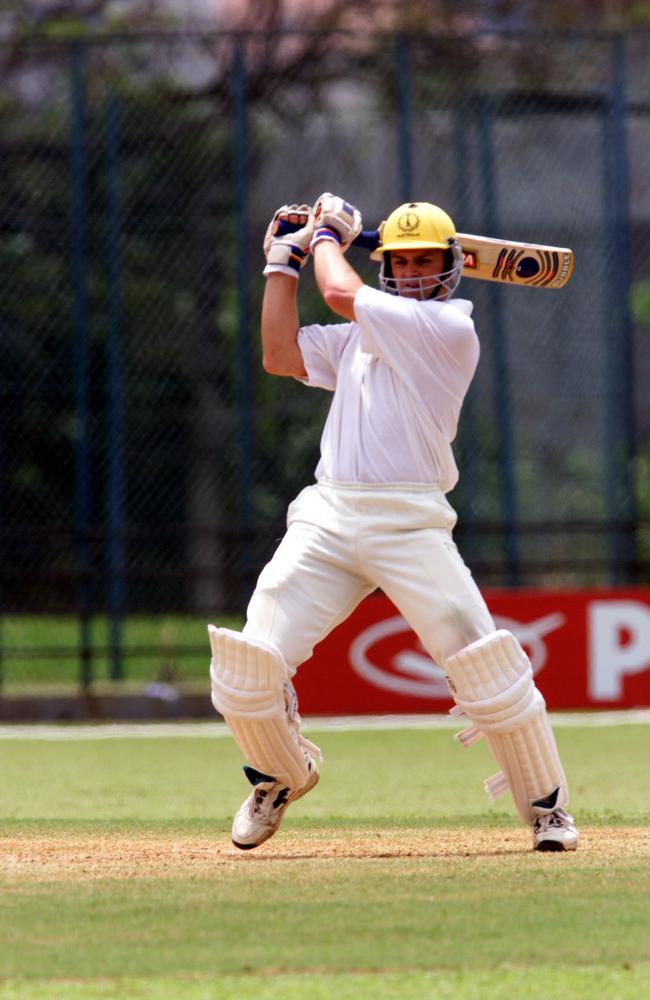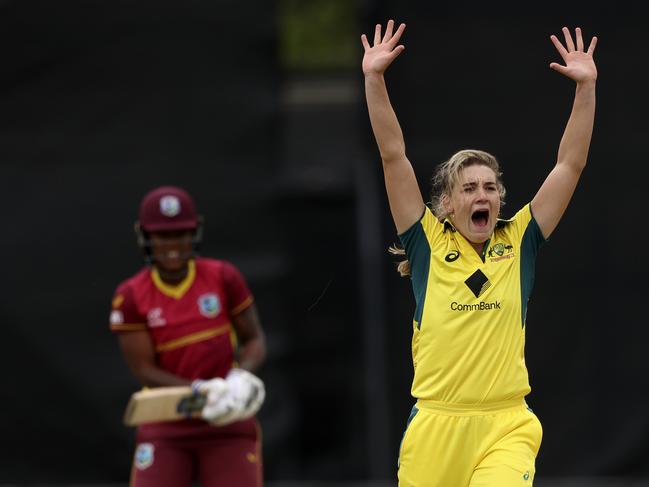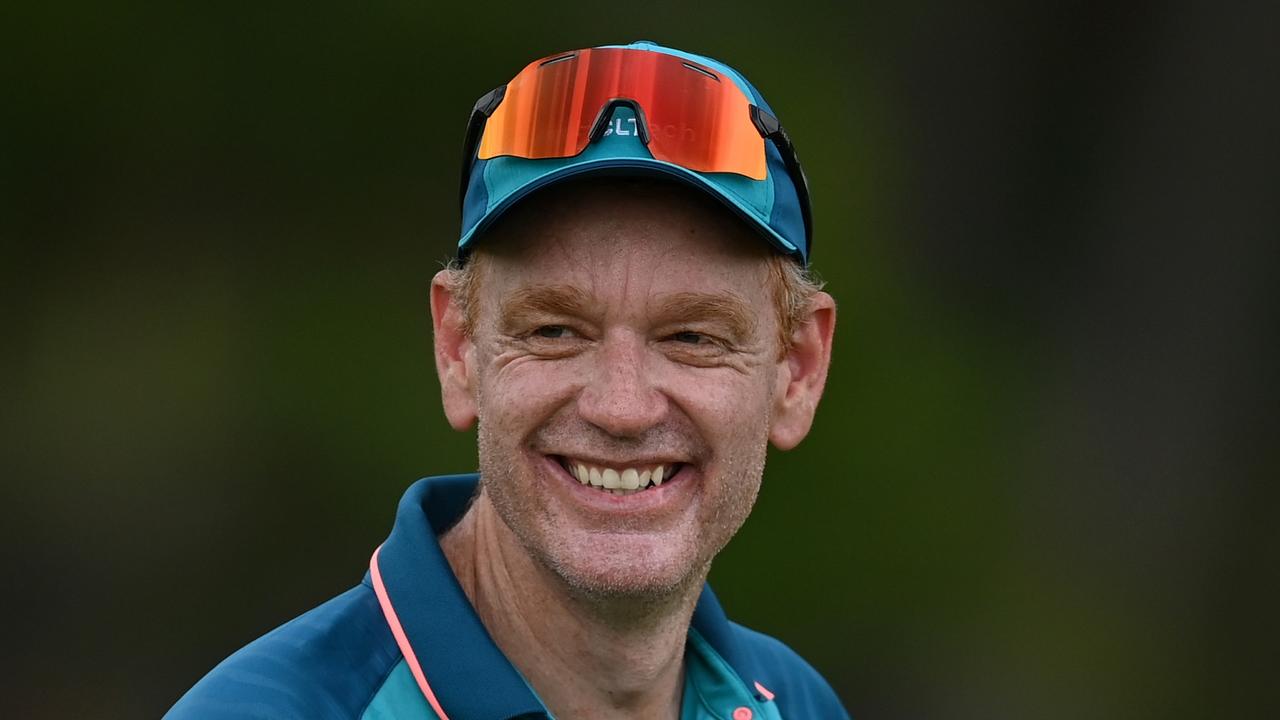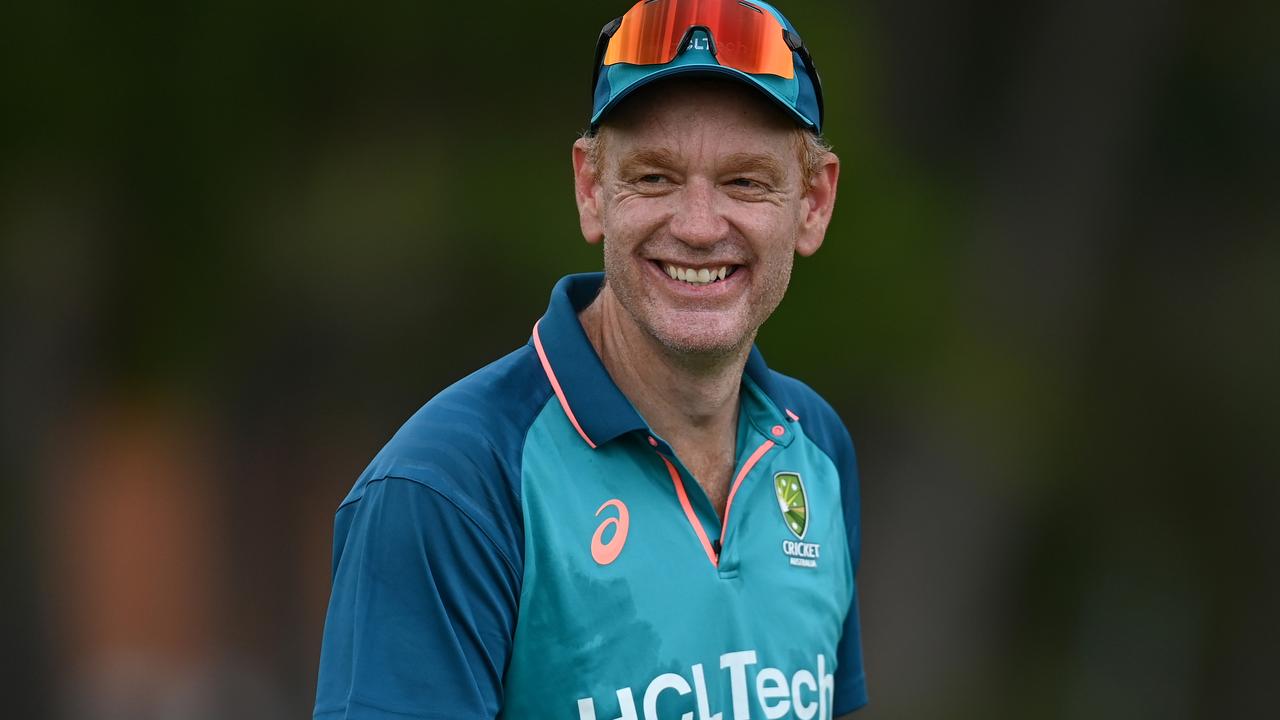Adam Gilchrist’s role in bringing cricket to the Olympic Games
With cricket joining the Olympic family, BEN HORNE reveals Adam Gilchrist’s role in pioneering and driving a dream that has the potential to change the sport forever.

Cricket
Don't miss out on the headlines from Cricket. Followed categories will be added to My News.
Cricket’s entry into the Los Angeles Olympics traces all the way back to an impassioned pitch made by Adam Gilchrist and a group of Australian superstars 15 years ago.
Self-interest from England and India threatened to sabotage cricket’s Olympic push over the years, and although the BCCI’s riches have, as always, been the ultimate factor, it is Australia who should be receiving the most credit for pioneering and driving a dream that has the potential to change the sport forever.
The day before the start of the Beijing Olympics in 2008, cricket greats including Gilchrist, Ricky Ponting, Steve Waugh, Kumar Sangakkara, VVS Laxman and Sourav Ganguly wrote an open letter throwing their weight behind the Olympic mission.
A year later, Gilchrist delivered a lecture at Lord’s where he declared that unlike other sports like basketball and baseball, elite cricketers would hold the Olympics up as the pinnacle.

Gilchrist, Waugh and Ponting had all been part of cricket’s foray into the Commonwealth Games in 1998 and their ability to grasp the bigger picture of what was possible if the subcontinental might of cricket and the Olympic movement joined forces was hugely influential in opening the eyes of self-serving international administrators.
“The Olympics is the absolute pinnacle of sport … unlike basketball and baseball, our best cricketers would definitely participate in every Olympic Games that featured cricket,” Gilchrist said at his Cowdrey Lecture in 2009.
“The chance to stand on top of the Olympic podium, to wear an Olympic gold medal and the pride of belting out your national anthem would be a life-changing, money-can’t buy experience.”
Gilchrist’s speech was written by then Cricket Australia public affairs boss Philip Pope, who also penned a report for his chief executive James Sutherland titled ‘Cricket Within the Olympic Movement’, which would prove pivotal in cricket’s patient quest to crack the Olympics.
The three men articulated the vision that together, cricket and the Olympics could take each other to new markets and new heights that alone, they could not achieve.
“Without doubt, the Olympic movement provides one of the most efficient and cost effective distribution networks for individual sports to spread their wings globally,” Gilchrist said.
“It would be difficult to see a better, quicker or cheaper way of spreading the game throughout the world.
Five sports have been proposed by the @LA28 Organising Committee for inclusion at the Olympic Games in Los Angeles in five years' time:
— The Olympic Games (@Olympics) October 9, 2023
âš¾ Baseball-softball
ðŸ Cricket
🈠Flag football
🥠Lacrosse
âš« Squash
The final decision will be made in the coming days. pic.twitter.com/kU1303jY0A
“ … (Also), the Olympic movement’s only remaining dead pocket in the world happens to coincide with cricket’s strongest – the subcontinent. This region … represents just over one fifth of the world’s population.”
Originally, cricket had set its sights on the catchy Twenty20 in 2020 for Tokyo, but in reality, it couldn’t have scripted a better Olympics arrival than Los Angeles, because 2028 provides cricket the vehicle it has been looking for to make significant inroads in the USA.
Pope, who now lives and works in Brisbane, had also been the PR manager for London’s successful 2012 Olympics bid and sees similarities between that victory and cricket’s success.
“I think you could call it, we played a long game,” Pope told this masthead ahead of Friday’s confirmation of cricket’s entry this weekend at an IOC meeting in Mumbai.
“A little bit like the London Olympic bid, we knew we would get there but it took us six years to get there. For cricket in the Olympics, it’s taken us 15 years to get there, but my view is both were inevitable.
“How will this opportunity impact cricket in 15 years from now? You’ll see more countries will end up playing cricket. You’ve seen that in Rugby Sevens, Russia, Spain and Canada have all come through as genuine contenders. That will happen in cricket, no doubt.
“(International Cricket Council CEO) Geoff Allardice is playing a blinder. Part of next year’s T20 World Cup will be in America and he’ll have cricket facilities in Los Angeles as a legacy of (the Olympics).”

Given Sutherland, CA’s long-time chief, was such a key architect of cricket’s Olympics bid, it’s fitting that his daughter – Australian fast bowler Annabel, will be at the peak of her powers when Los Angeles 2028 comes around.
“I’ve definitely come in at the right time. It’s exciting,” Sutherland, 22, told this masthead.
“It’s one of the more iconic events in the world. For it to be in LA as well, exposes the game to America, a country that does sport so well in general. That’s a pretty exciting opportunity for the game.”
Australian women’s star Megan Schutt has backed up Gilchrist’s confidence that despite the ingrained tradition of World Cups in cricket – the Olympics would become the pinnacle.
“I was at the Manchester Commonwealth Games last year and I remember pre-tournament I was excited for it, but I was like, ‘this isn’t a World Cup.’ Then suddenly, something snapped while we were playing the gold medal match and it was like, ‘holy shit, I want to win this so bad,’” Schutt said.
“Then having a gold medal around your neck, it’s so different. It would be the same for the Olympics.
“You’d have big nations putting money into cricket and not just India, possibly America, China. It’s a gold bloody medal at the end of the day. You’re going to want to invest in that.
“It’s great for the global game and it truly makes it a world cup. It will make our sport truly global and that’s what we’ve been pushing for for a long time.”
More Coverage
Originally published as Adam Gilchrist’s role in bringing cricket to the Olympic Games





